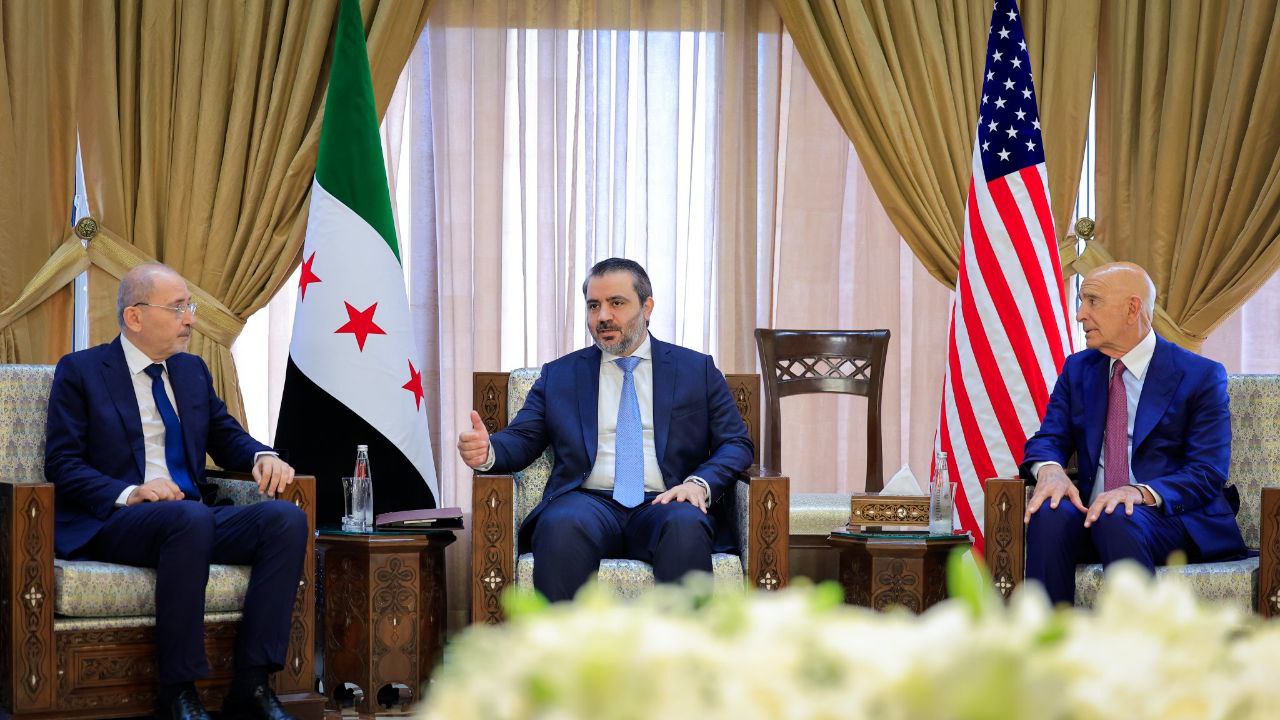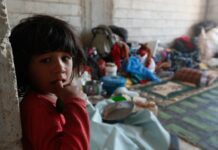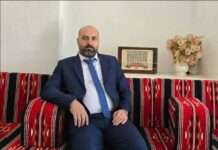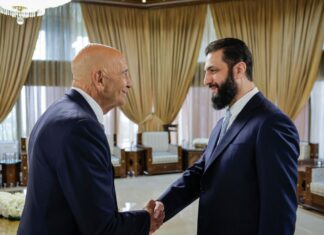
Syria, Jordan and the United States presented a roadmap to resolve the crisis in Syria’s southern Suwayda province, requesting that the UN adopt it as an official document. The plan, unveiled in Damascus after a series of meetings in Amman, sets out steps to restore security and rebuild trust following deadly sectarian clashes in July that left hundreds dead and displaced more than 160,000 people, according to UN figures.
Syrian Foreign Minister Asaad al-Shaibani said the agreement includes prosecuting those responsible for inciting violence, ensuring the continued flow of humanitarian aid, restoring services and deploying regular security forces on main roads. It also calls for releasing detainees, uncovering the fate of missing persons and beginning a process of reconciliation.
UN Consideration of Roadmap
September 18, envoys of Syria, Jordan and the US sent a joint letter to UN Secretary-General António Guterres and the Security Council president requesting the roadmap’s adoption. If approved by the Security Council, it could be codified as a binding resolution, obligating member states to support its implementation under the UN Charter.
Syria’s Permanent Representative to the UN, Ibrahim Olabi, told the council the initiative represents “a historic opportunity for a new Syria.” He said the government was committed to accountability, humanitarian aid and reconciliation, describing the process as “a gradual path to restore trust and rebuild affected communities.”
Mixed Reactions to the Initiative
International responses have been largely supportive. France called the roadmap an “encouraging first step,” urging its rapid implementation to improve conditions for civilians in Suwayda. Egypt, Bahrain and the Arab Parliament also welcomed the plan, highlighting its potential to stabilize Syria’s south and preserve the country’s unity.
US Special Envoy Tom Barrack praised the effort, writing that “reconciliation begins with a single step” and thanking Druze leader Walid Jumblatt for his role in guiding community support. Jordanian Foreign Minister Ayman Safadi, a Druze, stressed that the security of Suwayda was linked directly to Jordan’s stability, while condemning ongoing Israeli strikes in Syria.
Not all voices have endorsed the deal. The Suwayda Supreme Legal Committee, with ties to Israeli-backed Druze leader Hikmat al-Hijri, rejected the roadmap, arguing that Damascus could not act as both “accused and judge.” It called instead for self-determination and international accountability mechanisms.
Challenges Ahead for Implementation
UN Special Envoy for Syria Geir Pedersen said the roadmap’s success depends on “achieving accountability and justice, releasing detainees and delivering humanitarian aid.” He urged sustained international support and a halt to foreign interference in Syria’s internal affairs.
Despite questions over local acceptance, the agreement has put the Suwayda crisis on the international stage. Whether the Security Council adopts the roadmap as binding or leaves it as a political statement, the coming weeks will test the willingness of all parties to turn commitments into results.








